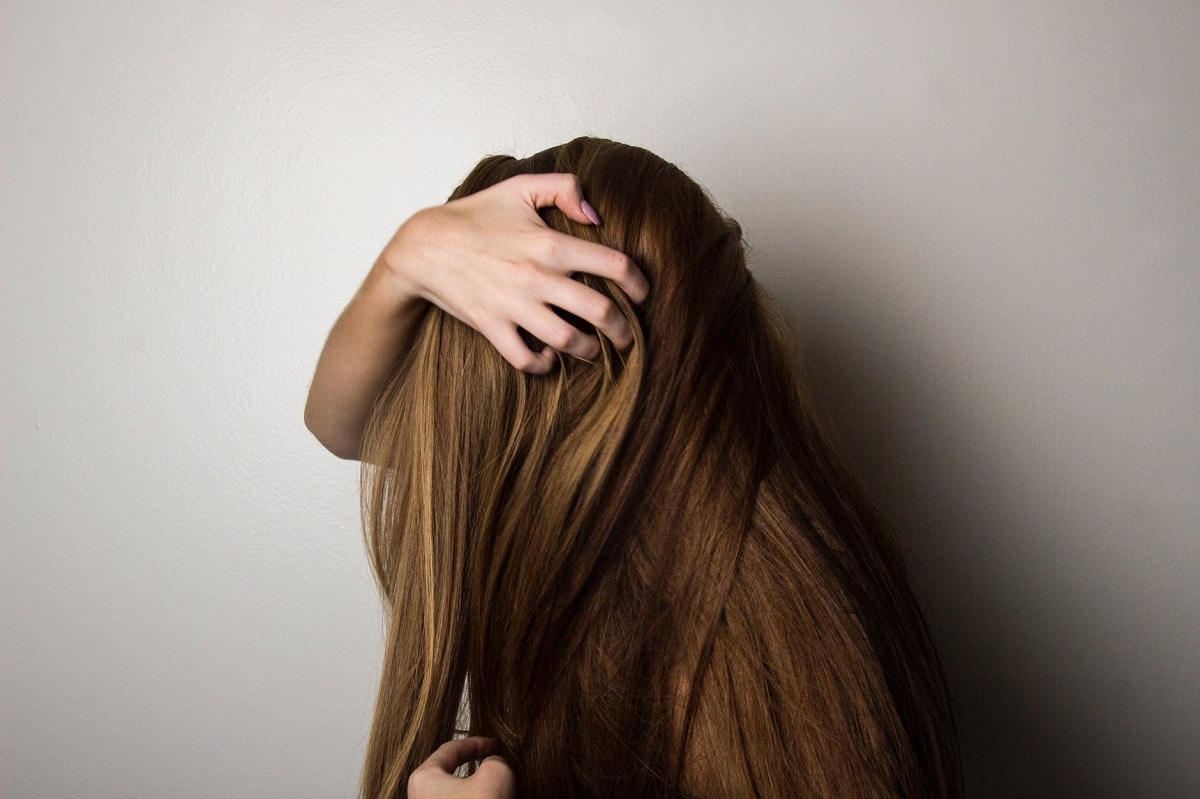
Many women concerned about excessive hair loss or female alopecia. Those who are in this situation hope to find a remedy to stop this decline. Nevertheless it is not something that can be cured since it is not a disease in itself. Alopecia, in most cases a symptom of other things that are happening in our body.
Therefore, in today's article We are going to talk and go into a little more detail about why hair falls out, how to differentiate a real alopecia from an androgenetic alopecia which is what we are going to deal with.
What is androgenetic alopecia?
It is the type of alopecia that 60% of men suffer since it is related to male hormones. Women also have these hormones as is the case with testosterone. It is a genetic and hormonal alopecia in the case of men, and hormonal in the case of women.
A high level of androgens means an excess in free testosterone that causes androgenization of the woman. Androgens are male hormones, which are also necessary for women although at much lower levels than in the case of men.
Androgenesis causes, among other symptoms that we will talk about later, hair loss. Produces a gradual decrease in the activity produced in the hair follicles that are reducing in size and therefore the hair becomes thinner. Over time, atrophy of the hair bulb occurs and therefore the death of the follicle and the loss of that hair.
How to know if we have high androgens?
The simplest is Perform an analysis to find out how the levels of these hormones are. However there are many others symptoms accompanying an elevated androgen level in addition to hair loss, such as:
- Hair grows in areas where it normally grows on men, something called irsutism.
- Spots on the skin behind the neck, elbows and armpits.
- Overweight problem without being able to reduce the volume in the gut no matter how hard you try.
- Hair loss is more noticeable in "the recesses" and the crown. In the same way that men's hair usually falls out.
- The voice can be aggravated.
- May cause polycystic ovary syndrome (PCOS)
- Acne
Not everyone suffers from all the symptoms of androgenesis. Pay attention to your body to see what symptoms you can find if you have excessive hair loss or it is changing you and you do not understand why.
You may be interested in this article on PCOS, the pill, nutrition, and how to reduce or reverse PCOS: Polycystic Ovarian Syndrome (PCOS) and nutrition
What to do to stop or reverse androgenetic hair loss?
Once we have come to the conclusion that we have an excess of androgens we must locate why this situation occurs.
The most common is that we are prescribed medications to alleviate the symptoms of this alopecia, however, when we stop taking the medication, hair loss returns. This is because the root of the problem is not being addressed. They are usually drugs such as Minoxidil, Finasteride, etc. There are even those who decide to bet on a transplant to try to solve the problem. However, the transplant follicles will also end up dying if the hormonal problem is not established.
The influence of insulin
Insulin is a growth hormone, necessary for our body, which it causes anything that is in contact with insulin to grow. It also causes a stimulation of testosterone. This is not a problem in itself. But If testosterone is produced in excess and it remains as free testosterone, there we can find problems in our body. This testosterone looks for where to bind and while it does it causes problems.
Elevated testosterone also prevents ovulation, not menstruation, which causes androgens to increase, an increase in androgens prevents ovulation and without ovulation androgens continue to increase. Therefore a circle is generated that feeds itself. Without ovulation, progesterone is not produced and therefore there is no hormone that balances the level of testosterone. Without ovulation, moreover, we make our hair, nails, bones, to weaken.
How to avoid it?
Insulin is stimulated with the consumption of sugars (Remember that carbohydrates are sugars in our body). If we reduce insulin, it reduces the problems that we have been talking about. Therefore, a change in our diet becomes essential to deal with all the symptoms. derived from androgenization.
Once the hormonal levels of our body are regulated, we will begin to see how the symptoms we are talking about should be considerably reduced. Once we begin to ovulate normally we can reintroduce carbohydrates into our day to day if we want, always controlling the amounts so as not to suffer from the problem that we have reversed.
We must also bear in mind that if the hair follicles die, those hairs will not recover. However, those that continue without affecting them will regain their vigor, the hair will also thicken and therefore the density. Therefore, the sooner we start to remedy the androgenetic fall the better.
Always before starting a low-carbohydrate diet, you must go to a nutritionist to discuss our case and to follow up safely. We must have a balanced diet within our means.
To help us burn excess glucose we can also use exercise. Therefore, if we make a change in habits in our day to day, we will benefit our health in many ways.
Maybe you might be interested in:
Keto and Paleo eating: differences
Know the nutritional needs of women
Circadian rhythms What are they and how to apply them to our days?
